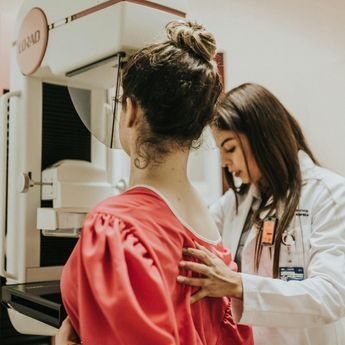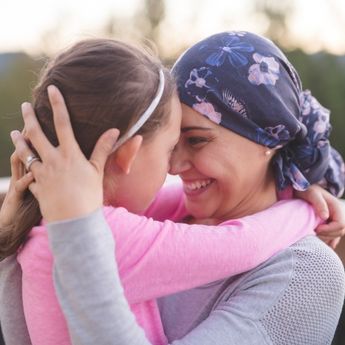By continuing to use our site, you consent to the processing of cookies, user data (location information, type and version of the OS, the type and version of the browser, the type of device and the resolution of its screen, the source of where the user came from, from which site or for what advertisement, language OS and Browser, which pages are opened and to which buttons the user presses, ip-address) for the purpose of site functioning, retargeting and statistical surveys and reviews. If you do not want your data to be processed, please leave the site.
The Voice of People With Breast Cancer
Education
Our Voices Blog
Assessing Eligibility to Access Genetic Testing in Canada: Jaclyn’s Access
Many aspects of healthcare access in Canada are based on where you live. Access to genetic testing for hereditary cancer is no exception. To assess and illustrate this, we reached out to our community and spoke to five women to map where they would and would not be eligible to access genetic testing in Canada in the present day. Let’s meet Jaclyn Carter and explore where she may or may not be eligible to access genetic testing for hereditary cancer in Canada.
Get Smart About Dense Breasts
This is what I used to think about my boobs before I was diagnosed with breast cancer: Perky. Full B-cups. Still look good without a bra. Pretty good descriptors, right? That’s because back then I liked my boobs. I had a happy, take-them-at-face-value relationship with them and it worked. Or at least I thought it did until I was diagnosed with breast cancer. Now, I know about and worry about all kinds of breast cancer-related things. Like, the fact that I have dense breasts.
Assessing Eligibility to Access Genetic Testing in Canada: Khalilah’s Access
Many aspects of healthcare access in Canada are based on where you live. Access to genetic testing for hereditary cancer is no exception. In the first articles of this series, we spoke to Mykah Obrigewitch and Rebecca Dahle. Today, let’s meet Khalilah Elliott and explore where she may or may not be eligible to access genetic testing for hereditary cancer in Canada.
What You Wanted to Know: Our Most-Read Blogs of 2025
From timely knowledge and practical guidance to personal perspectives and experiences, these posts sparked conversation, answered questions that were important to you, and reflected which topics our community was most interested in reading about over the past year. Here is a countdown of your favorite blogs from 2025.
What We Don’t Know (and it’s a lot), Should Know, About Canada’s Breast Cancer Screening Guidelines
How old were you when you first learned you were eligible for a mammogram? If you’re like me, that information only became clear after you found a lump of your own. And at that point, the rules and guidelines about when women can and can’t access breast cancer screening don’t feel relevant anymore—it’s too late. Except that it shouldn’t be.
Before You Ask AI About Your Health, Read This
Over the past year, something important has shifted in how people look for health information. More patients are turning to artificial intelligence (AI) tools like ChatGPT, not to replace their doctors, but to fill the long stretches of uncertainty between appointments.
Assessing Eligibility to Access Genetic Testing in Canada: Rebecca’s Access
Many aspects of healthcare access in Canada are based on where you live. Access to genetic testing for hereditary cancer is no exception. In the first articles of this series, we spoke to Mykah Obrigewitch. Today, let’s meet Rebecca Dahle and explore where she may or may not be eligible to access genetic testing for hereditary cancer in Canada.
Assessing Eligibility to Access Genetic Testing in Canada: Mykah’s Access
Many aspects of healthcare access in Canada are based on where you live. Access to genetic testing for hereditary cancer is no exception. To assess and illustrate this, we reached out to our community and spoke to five women to map where they would and would not be eligible to access genetic testing in Canada in the present day. This is Mykah's story.
The Messy, Honest Truth About Diagnosis, Recovery and the Emotions No One Talks About
I’m an open book about breast cancer. I’ve chosen to be vocal because I want to wipe out stigma, shine light on little-talked about topics and help other women feel less alone. When I was first diagnosed with breast cancer, it didn’t cross my mind that one day I’d want to share all the details about my personal experiences with cancer by writing a monthly column, but life is weird and here I am. And I’m grateful. Especially when I receive a direct message on my Instagram from a woman I don’t know, who is dealing with her own breast cancer diagnosis and looking for support.
Charting a Different Course
Jeanne lost her mother when she was 25, and her aunt also had breast cancer. When Jeanne was diagnosed with triple-negative breast cancer (TNBC), her children were still very young. In her blog, www.triplenegatif.blogspot.com, Jeanne returns to the multiple aspects of the breast: that of the woman, the mother, the sick person, then the reconstructed breast. Heredity and lineage, but also faith, are questioned in a lyrical, almost poetic and soul-searching way.













